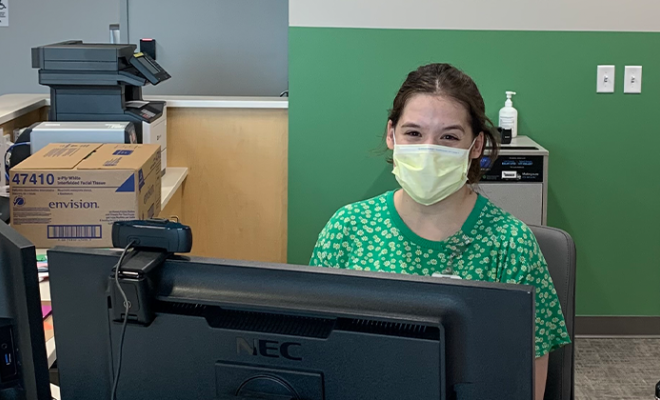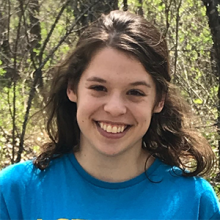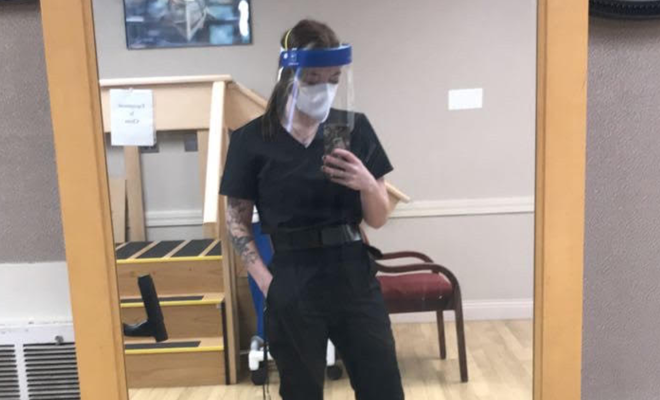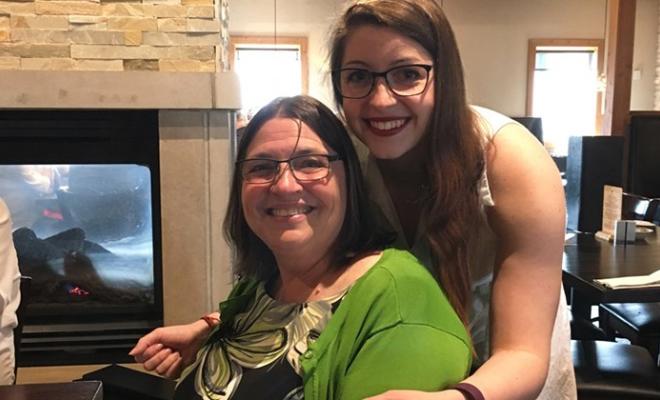Having been diagnosed as an infant, life with cystic fibrosis is the only one I have known. Growing up with a chronic illness brings its own set of unexpected, momentous occasions. For instance, I learned how to swallow pills at age 8. At age 15, I started holding myself accountable for doing my vest and nebulizer treatment regularly. When I was 21, I transitioned to an adult CF center and got a whole new care team. Trikafta® entered the scene when I was 22. These events, like all milestones, mark significant changes in my life. I’ve had some incredible “normal” milestones, too: I got to travel in Europe during college, and I completed my undergraduate degree in 2020.
High school jobs — even casual summer ones — are seen as rites of passage for most teens in our society. In my case, my parents never pushed me to get one while I lived under their roof. They knew my health was more important, and my academics came second. Over the years, I’ve heard managing CF referred to as having a “full-time job,” and I absolutely stand behind that statement. CF has always been my first priority. Without doing breathing treatments or taking medications every day, I simply couldn’t be a functional person. For many years, I was a student, which also felt like a full-time job. Needless to say, I never had the time or energy for an actual job. My very first job was a work-study position as a receptionist for my freshman residence hall in college. Truthfully, I feel as though I can hardly label those seven hours per week as a job. It was a pretty unrealistic representation of what having a job was like, but it was the most fun and low-key introduction to work life I can imagine.
I knew with certainty as early as my sophomore year of high school that I wanted to be an occupational therapist (OT). However, the more I thought about it, the more doubtful I became about my ability to maintain a traditional, full-time job. I knew I was often exhausted during the day, and I presumed a 40-hour work week would just be too taxing on my body. I could hardly make it through the day without a nap. In college, I questioned whether it was even worth it to pursue a postgraduate OT degree. What if the hospital or clinic setting wasn’t a safe environment and my lung function plummeted? What if I’d spent a fortune on school, and by the time it came to using that degree in a career, I was too sick to do so? For many years now, I’ve been excited about the possibility of becoming an OT. However, part of me is devastated at the thought that I may never actually make it that far.
After I graduated college in May 2020, I started my first “real” job as a part-time physical therapy office assistant in the fall. At that point, the COVID-19 pandemic was well under way, and I was apprehensive about exposing myself to the world while having an underlying health condition. I was grateful for my part-time schedule because it meant I could settle into the COVID working world comfortably. Plus, working in the afternoons meant I could begin the day with a peaceful morning. Note: I am NOT a morning person.
I enjoyed just over a year at that first clinic. At that point, it became clear to me that I was ready to take a new career step, and I considered transitioning to a full-time position. In theory, working more hours per week sounded appealing. I had a decision to make, and it came with risks. When I got offered the job I have now, I momentarily considered turning it down when my anxiety about the long days felt more powerful than my enthusiasm for everything else about it. I could not be more relieved about how it all eventually came together. I am six months into my new pediatric therapy aide role, and I’m incredibly proud of myself for pushing through the adjustment period and making it all work.
What has really made a world of difference at work has been inviting some comforts of home into my routine. I brought in a microwaveable heat pack to help ease my ongoing neck pain, I keep a mug and some tea at my desk, and I listen to music while I tidy therapy rooms. We even have the convenience of a coffee shop that’s literally steps away from our door. (I have faced the expensive reality that caffeine is often what I need to make it through the day.) Altogether, these elements allow time for the daily self-care that is so fundamental as a person with CF.
Shortly after starting this job, I also embarked on another new adventure. In January, I began a part-time schooling program toward a medical assisting diploma — I’ve decided to postpone my dreams of occupational therapy for several years until I find my footing as a proper adult with financial stability. This time, I will have greater confidence in my health to help me achieve this new goal. I’m thrilled to be moving toward a career as a medical assistant. I welcome the opportunity to incorporate my own experiences as a lifelong patient in how I care for others.
I’ll be honest — I have mostly Trikafta to credit for this newfound confidence in my health. I think about the coincidental timing that allowed this medication to be approved before the U.S. Food and Drug Administration was preoccupied with COVID-19-related medications. From time to time, I ponder a life without Trikafta and think, “What would I be doing right now?”
Trikafta brings me peace of mind, so I feel a little bit safer on this unfamiliar terrain. However, I know I cannot sing the praises of Trikafta without simultaneously acknowledging that there are still many who can’t benefit from it. It’s extraordinary to watch this scientific progress happen before our eyes as more and more people with CF gain some autonomy. We are finding our way in the world through facing new challenges, but also experiencing remarkable moments. I will always be proud of all my milestones. For me, something as commonplace as going to work each day is an unexpected victory.
Interested in sharing your story? The CF Community Blog wants to hear from you.





